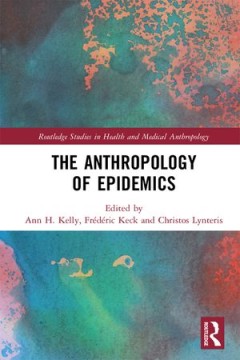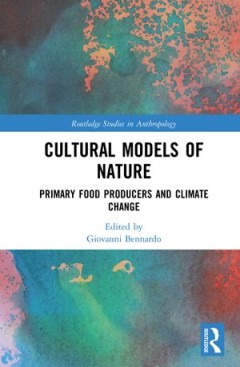Filter by

After Corporate Paternalism : Material Renovation and Social Change in the Ti…
In this ethnographic study of post-paternalist ruination and renovation, Christian Straube explores social change at the intersection of material decay and social disconnection in the former mine township Mpatamatu of Luanshya, one of the oldest mining towns on the Zambian Copperbelt. Touching on topics including industrial history, colonial town planning, social control and materiality, gender…
- Edition
- -
- ISBN/ISSN
- 9781800734159
- Collation
- -
- Series Title
- -
- Call Number
- -

Afropolitan Horizons : Essays toward a Literary Anthropology of Nigeria
Nigeria is a country shaped by internal diversity and transnational connections, past and present. Leading Nigerian writers from Chinua Achebe, Amos Tutuola and Wole Soyinka to Chimamanda Ngozi Adichie and Teju Cole have portrayed these Nigerian issues, and have also written about some of the momentous events in Nigerian history. Afropolitan Horizons discusses their work alongside other novelis…
- Edition
- -
- ISBN/ISSN
- 9781800732995
- Collation
- -
- Series Title
- -
- Call Number
- -

Slogans : Subjection, Subversion, and the Politics of Neoliberalism
Focusing on contexts of accelerated economic and political reform, this volume critically examines the role of slogans in the contemporary projects of populist mobilization, neoliberal governance, and civic subversion. Bringing together a collection of ethnographic studies from Greece, Slovakia, Poland, Abu Dhabi, Peru, and China, the contributors analyze the way in which slogans both convey an…
- Edition
- -
- ISBN/ISSN
- 9780429486401
- Collation
- -
- Series Title
- -
- Call Number
- -

The Anthropology of Epidemics
Over the past decades, infectious disease epidemics have come to increasingly pose major global health challenges to humanity. The Anthropology of Epidemics approaches epidemics as total social phenomena: processes and events which encompass and exercise a transformational impact on social life whilst at the same time functioning as catalysts of shifts and ruptures as regards human/non-human re…
- Edition
- -
- ISBN/ISSN
- 9780429461897
- Collation
- -
- Series Title
- -
- Call Number
- -

The materiality of nothing : exploring our everyday relationships with object…
- Edition
- -
- ISBN/ISSN
- 9781003130093
- Collation
- -
- Series Title
- -
- Call Number
- -
- Edition
- -
- ISBN/ISSN
- 9781003130093
- Collation
- -
- Series Title
- -
- Call Number
- -

Sámi research in transition : knowledge, politics and social change
- Edition
- -
- ISBN/ISSN
- 9781003090830
- Collation
- -
- Series Title
- -
- Call Number
- -
- Edition
- -
- ISBN/ISSN
- 9781003090830
- Collation
- -
- Series Title
- -
- Call Number
- -

Rendering houses in Ladakh : personal relations with home structures
- Edition
- -
- ISBN/ISSN
- 9781003086536
- Collation
- -
- Series Title
- -
- Call Number
- -
- Edition
- -
- ISBN/ISSN
- 9781003086536
- Collation
- -
- Series Title
- -
- Call Number
- -

Crowds : ethnographic encounters
- Edition
- -
- ISBN/ISSN
- 9781003085133
- Collation
- -
- Series Title
- -
- Call Number
- -
- Edition
- -
- ISBN/ISSN
- 9781003085133
- Collation
- -
- Series Title
- -
- Call Number
- -

The anthropology of parliaments : entanglements in democratic politics
- Edition
- -
- ISBN/ISSN
- 9781003084488
- Collation
- -
- Series Title
- -
- Call Number
- -
- Edition
- -
- ISBN/ISSN
- 9781003084488
- Collation
- -
- Series Title
- -
- Call Number
- -

Cultural Models of Nature : Primary Food Producers and Climate Change
Drawing on the ethnographic experience of the contributors, this volume explores the Cultural Models of Nature found in a range of food-producing communities located in climate-change affected areas. These Cultural Models represent specific organizations of the etic categories underlying the concept of Nature (i.e. plants, animals, the physical environment, the weather, humans, and the supernat…
- Edition
- -
- ISBN/ISSN
- 9781351127905
- Collation
- -
- Series Title
- -
- Call Number
- -
 Computer Science, Information & General Works
Computer Science, Information & General Works  Philosophy & Psychology
Philosophy & Psychology  Religion
Religion  Social Sciences
Social Sciences  Language
Language  Pure Science
Pure Science  Applied Sciences
Applied Sciences  Art & Recreation
Art & Recreation  Literature
Literature  History & Geography
History & Geography